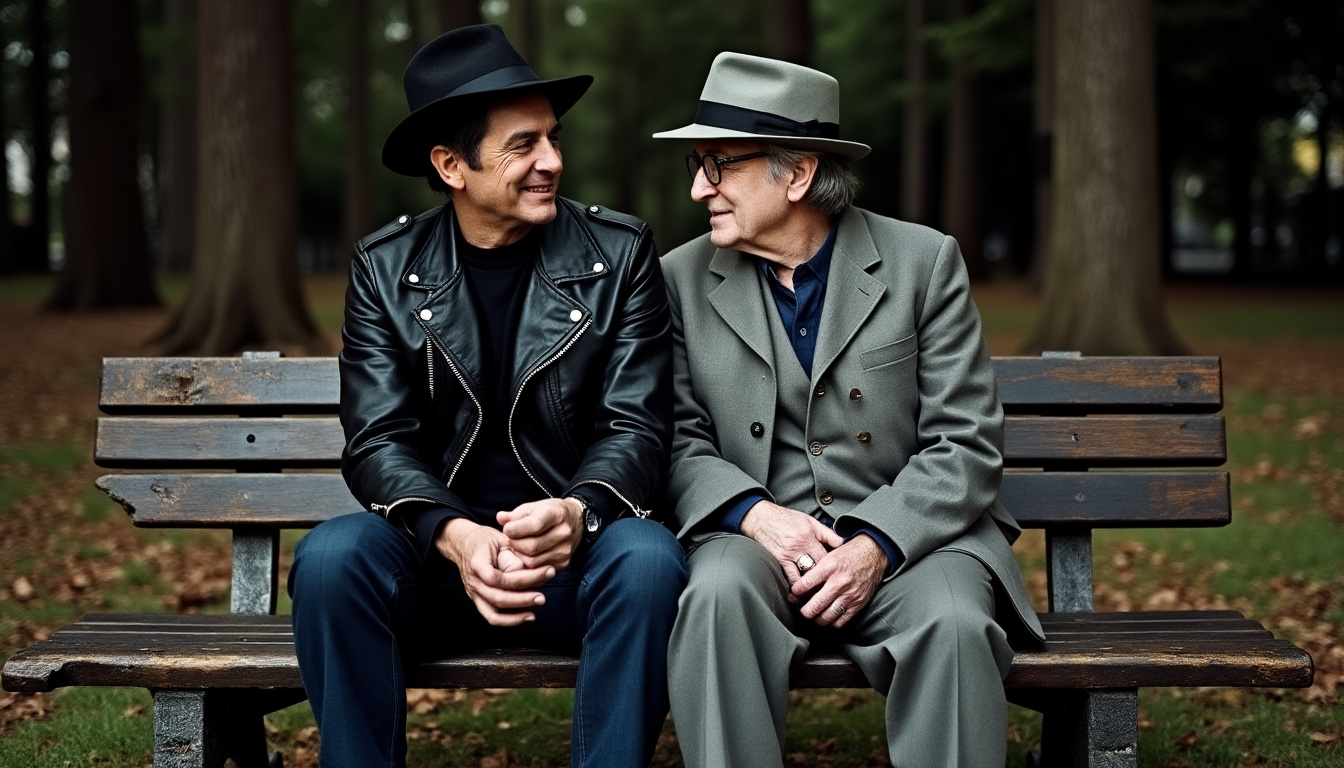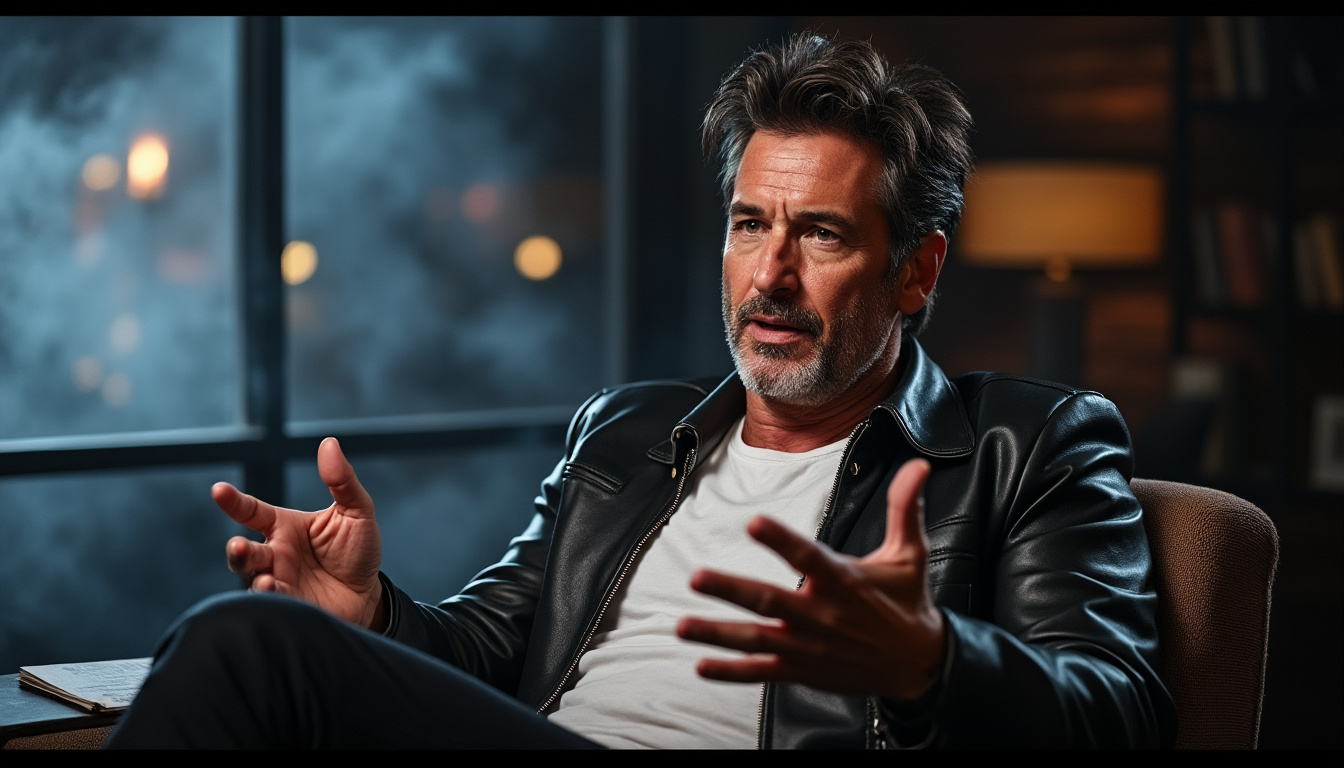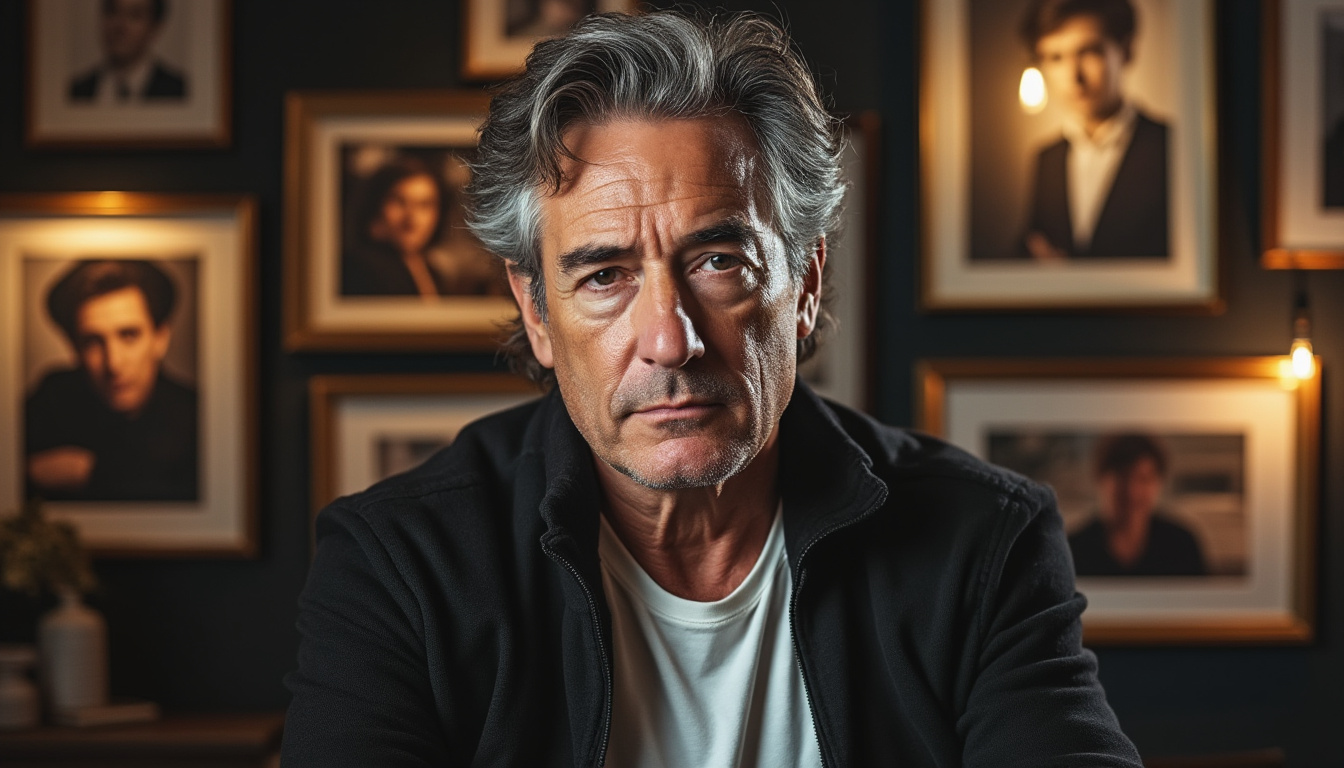In a bold statement that has ignited conversation, Sean Penn recently expressed unwavering support for the filmmaker Woody Allen, emphasizing his belief in Allen’s innocence amidst long-standing controversies. Speaking on The Louis Theroux Podcast, Penn’s comments reflect a growing divide in public opinion regarding celebrities accused of serious crimes. This divergence shines a spotlight on the complexities of celebrity culture, artistic freedom, and media representation.
Sean Penn’s Stance on Woody Allen’s Allegations
During his appearance on The Louis Theroux Podcast, actor Sean Penn did not hesitate to voice his belief in Woody Allen’s innocence. Known for his controversial views, Penn stated he would work with Allen again “in a heartbeat,” despite the serious nature of the accusations against him. Allen’s controversies date back to 1992 when his adopted daughter, Dylan Farrow, alleged that he had sexually abused her. Since then, Allen has faced severe backlash and has been largely ostracized from the film industry.
Sean Penn, who starred in Allen’s acclaimed 1999 film Sweet and Lowdown, explained his defense of Allen by expressing skepticism about the narratives presented by those accusing the filmmaker. He remarked, “I love that movie. I’d work with him in a heartbeat if it was the right thing,” underscoring his admiration for Allen’s artistic contributions. However, his comments are layered with implications about the nature of truth and trust in accusations involving high-profile individuals.
This sentiment, coming from a well-regarded figure in Hollywood, sets a precedent for discussions around accused celebrities. Penn crossed the line to express doubt about the narratives constructed around the claims against Allen, stating, “I haven’t read everything, but the stories are mostly told by people who I would not trust with a dime.” This betrays an underlying suspicion towards those making the allegations, indicating a wider cultural skepticism that has emerged in recent years toward accusations in general—especially when they arise from past relationships.
Legal and Societal Implications
The statements made by Penn are far more than mere support; they bring attention to the legal and societal implications of accusations in the entertainment industry. As accusations against public figures become more frequent and the consequences more severe, the legal landscape evolves accordingly. Allegations alone can tarnish careers, with many finding it challenging to rebuild their public image if unjustly accused.
Following the #MeToo movement, the film industry has seen a significant backlash against those accused of misconduct. Nevertheless, the concept of presumption of innocence remains paramount in any legal context. The challenge lies in balancing this legal principle with public discourse that often favors narratives rather than strict legal definitions of truth.
| Year | Event | Outcome |
|---|---|---|
| 1992 | Dylan Farrow’s Allegation | Media Outcry |
| 2014 | Ronan Farrow’s Op-Ed | Renewed Controversy |
| 2021 | Documentary Release | Heightened Public Scrutiny |
While Penn’s comments have sparked debates about accountability, they also draw attention to a perceived bias against those who have been accused. The direct questioning of Dylan’s credibility, along with many others, aligns with a broader skepticism that is increasingly prevalent in public discussions.
Celebrity Support and the Divided Public Opinion
Sean Penn isn’t alone in his defense of Woody Allen. Several celebrities have publicly backed Allen in the past, highlighting a pronounced division within the entertainment world. This pattern illustrates a deeper cultural conflict that exists around the complexities of judging public figures.
Support for Allen can often hinge on the celebrity’s relationships with him, as well as a broader philosophy surrounding artistic freedom. The notion that an artist’s work should be judged separately from their personal life continues to be debated within cultural institutions and fans alike. Critics argue that overlooking an artist’s alleged misconduct is tantamount to enabling a culture of abuse.
- Advocates for artistic freedom argue that:
- Art can transcend personal failings.
- Creativity often comes from flawed individuals.
- Preserving artistic legacies is important for cultural history.
- Supporting such artists can silence victims.
- Cultural institutions have a responsibility to uphold ethical standards.
- Perpetrators enjoying public support can perpetuate a harmful cycle.
These opposing viewpoints underscore the societal implications of the support expressed by figures like Penn. As the public and media continue to dissect accusations and defenses alike, the film industry must confront how support for a controversial filmmaker can spark larger discussions about morality, accountability, and the very nature of celebrity culture.

The Role of Media Representation
Media representation plays a crucial role in shaping public perceptions regarding allegations against artists like Woody Allen. The portrayal of events—whether through documentaries, news articles, or opinion pieces—can significantly influence how audiences interpret the situation. In recent years, projects like the documentary series “Allen vs. Farrow” have expanded the conversation by showcasing the narratives from those who have made allegations against Allen and providing insights into the dynamics of his relationships with his children.
As the media shapes the narrative surrounding these figures, the complexity of their portrayals often leaves audiences grappling with conflicting emotions. On one hand, personalities like Sean Penn highlight a faction of support within Hollywood; on the other, documentaries can amplify the voices of those harmed, drawing significant attention to the consequences of alleged actions.
In an age where social media is ubiquitous, the ability for public figures to influence public opinions has grown exponentially. Celebrities such as Penn wield considerable impact due to their platforms, capable of swaying fans and followers in ways that extend beyond typical news cycles. Some crucial considerations in this context include:
- The responsibility of celebrities to use their platforms wisely.
- The risks associated with voicing support for accused individuals.
- The potential for backlash from fans and the general public.
| Media Type | Impact on Public Sentiment |
|---|---|
| Documentaries | Highlight personal narratives; influence empathy. |
| Op-Ed Articles | Shape opinions; construct arguments for or against individuals. |
| Social Media | Amplify messages; create polarized discourse. |
The intersection of media and celebrity culture becomes even more complicated when figures like Sean Penn decide to publicly voice their support for individuals facing serious allegations. Such statements become focal points in an ongoing struggle between artistic appreciation and moral responsibility.
The Future of Woody Allen in the Film Industry
The film industry has evolved dramatically over recent years, and the future for accused filmmakers like Woody Allen hangs in the balance. Once regarded as a comedic genius, Allen’s shadow looms large in discussions regarding which artists deserve a public platform versus those deemed too controversial to continue working.
The discussions around Allen’s ability to return to the cinema spotlight raise key questions about redemption and acceptance in the industry. Despite the backlash, some industry insiders still defend the value of his storytelling and direction. Penn, expressing his belief in Allen’s innocence, reflects a degree of hope for a potential return to the big screen. However, this optimism this must be tempered with the recognition of the many voices advocating for a shift in how the industry engages with alleged transgressors.
Can Accused Artists Redeem Themselves?
This leads to an essential question: can artists accused of misconduct find redemption in the eyes of the public and within Hollywood? Many figures within the industry have either retreated or restructured their approach to filmmaking. Instances exist, such as those of directors facing allegations opting for anonymity in their works, or even stepping back from high-profile projects entirely.
- Redemption strategies could include:
- Engaging in community service or advocacy work.
- Publicly addressing concerns and pledging to change.
- Supporting new projects that focus on victims’ narratives.
While there may not be a clear path to redemption for Allen, the discussions surrounding celebrity culture and allegations against artists continue to grow. As public opinion shifts, and media representation constantly evolves, the future of artists like Allen will remain a contentious subject.
Public Reaction to Sean Penn’s Support
Public responses to Sean Penn’s statements about Woody Allen have been mixed, reflecting the divided nature of opinion on the subject. Supporters of Penn argue that he is championing artistic freedom and courageously voicing what many think in private. Critics, on the other hand, are quick to condemn his stance, arguing that it trivializes victims’ voices and experiences.
The diversity of reactions on social media platforms illuminates this complex dialogue. Users often share their thoughts through hashtags, making their opinions known and contributing to the growing discourse around celebrity accountability.
- Common themes in public reaction include:
- Condemnation of perceived indifference to victims.
- Defending artistic expression over personal conduct.
- Calls for a more equitable approach to how allegations are handled.
Ultimately, Penn’s comments and the surrounding discourse highlight the ongoing struggles within society to grapple with allegations of misconduct, and how public figures navigate these treacherous waters. Discussions initiated by celebrities can promote valuable conversations, yet they also run the risk of alienating audiences and perpetuating conflict.
| Public Response | Reactions |
|---|---|
| Support for Penn | Belief in artistic freedom; skepticism towards allegations. |
| Criticism of Penn | Concern for victim narratives; accusations of enabling. |
| Neutral | Acknowledgment of complexities in the matter. |
As the conversation surrounding Sean Penn’s support for Woody Allen continues to unfold, each contribution adds layers to the broader implications of celebrity culture, the media’s role, and the complexities of holding prominent figures accountable for their actions.



